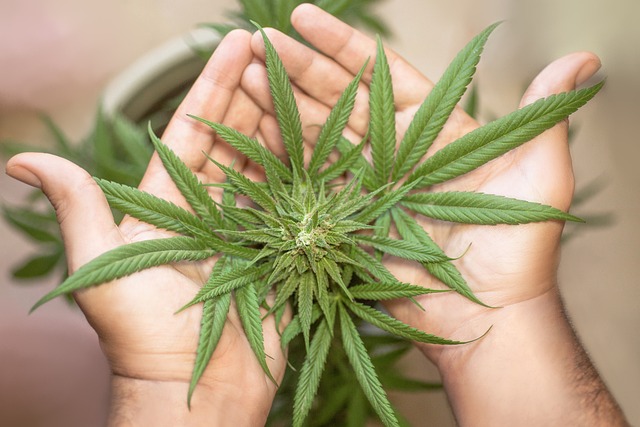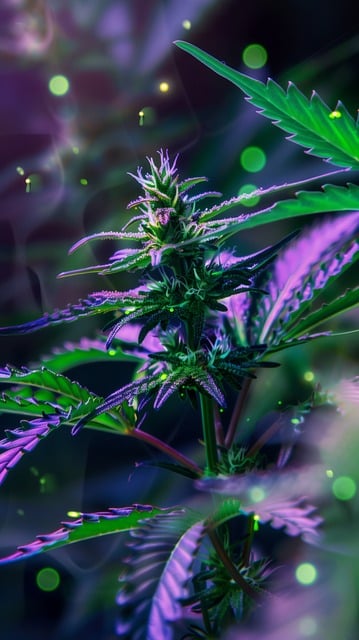Delta 9 THC gummies are legally available in Alabama under the condition that they are derived from hemp containing less than 0.3% THC by dry weight, as stipulated by both state and federal regulations, specifically the Alabama Legislature and the 2018 Farm Bill. These gummies offer a range of medical benefits, including pain management, mood improvement, appetite stimulation, anxiety relief, nausea reduction, and inflammation alleviation. In Alabama, consumers must purchase these products from credible sources that provide transparent labeling to ensure compliance with state laws. The evolving legal landscape around delta 9 THC in Alabama has expanded medical options for residents, with the gummy format offering precise dosing for a consistent and controlled experience. It's important for users to start with a low dose, be mindful of individual responses, and wait for effects to fully manifest before consuming more. As awareness of delta 9 THC's legal status grows, so does the market for these products, reflecting a trend towards hemp-derived cannabinoids as a wellness solution in Alabama.
Delta 9 gummies have emerged as a popular consumption method for those seeking the therapeutic potential of cannabinoids within the confines of Alabama’s evolving legal landscape. This article delves into their legal status, scientific underpinnings, and health advantages, providing insights for Alabaman residents interested in the benefits of these products. From understanding the dosage to exploring their impact on the state’s cannabis market, this comprehensive guide offers a balanced overview for both novices and seasoned users alike, ensuring informed decision-making within the bounds of the law.
- Delta 9 Gummies: Understanding Their Legal Status in Alabama
- The Science Behind Delta 9 THC Gummies and Their Potential Benefits
- Health Advantages of Delta 9 THC Gummies for Medical Use
- Navigating Dosage: How to Safely Consume Delta 9 THC Gummies in Alabama
- The Role of Delta 9 THC Gummies in the Alabaman Cannabis Market and Their Growing Popularity
Delta 9 Gummies: Understanding Their Legal Status in Alabama

Delta 9 gummies, a popular edible form of cannabis infused with delta 9 tetrahydrocannabinol (THC), have garnered attention for both their medicinal and recreational uses. In Alabama, the legal status of these gummies is subject to specific state laws and the 2018 Farm Bill. As per the Alabama Legislature, delta 9 THC derived from hemp is legal provided it contains no more than 0.3% THC on a dry weight basis. This distinction between hemp-derived delta 9 THC and marijuana-derived THC is crucial for its legality in the state. Hemp-derived products, including delta 9 gummies, are legal under federal law as per the Farm Bill, but their sale and possession must comply with Alabama’s Controlled Substances Act. It’s important to stay updated on local regulations, as interpretations and enforcement of these laws can vary within the state. Consumers in Alabama interested in delta 9 gummies should ensure that they are purchasing products from reputable sources that provide clear labeling about the source of THC and its concentration to remain compliant with both federal and state laws.
The Science Behind Delta 9 THC Gummies and Their Potential Benefits

Health Advantages of Delta 9 THC Gummies for Medical Use

Delta 9 tetrahydrocannabinol (THC) gummies offer a range of health advantages for individuals who have conditions that can be alleviated by cannabinoid therapy. In Alabama, where delta 8 THC was previously the focus due to state laws, delta 9 THC gummies have now become legal under certain conditions, providing patients with more options for medical treatment. For those eligible, delta 9 THC is celebrated for its efficacy in managing pain, particularly neuropathic pain. Its psychoactive properties can also improve mood and appetite, which are beneficial for patients suffering from conditions like cancer, where chemotherapy often leads to significant weight loss and depression. The gummy format allows for precise dosing, ensuring that users receive a consistent amount of the active ingredient, facilitating better control over their medication’s effects. Additionally, delta 9 THC gummies are known to provide relief from anxiety, nausea, and inflammation, making them a versatile choice for medical use. The legalization of these products in Alabama has made it easier for patients to access this form of treatment, which can be particularly beneficial for those with chronic or terminal illnesses seeking alternative pain management solutions.
Navigating Dosage: How to Safely Consume Delta 9 THC Gummies in Alabama

Delta 9 tetrahydrocannabinol (THC) gummies have gained popularity across various states, including Alabama, where their use is regulated under specific legal frameworks. Understanding dosage is crucial for a safe and enjoyable experience with delta 9 THC gummies in Alabama. The legality of these products hinges on the source; they must be derived from hemp that contains no more than 0.3% THC to be considered legal under the 2018 Farm Bill and corresponding state laws.
When considering dosage, it’s important to start low and go slow. Each individual may react differently to delta 9 THC, and factors such as body weight, tolerance, and cannabis naivety play significant roles in how one might experience its effects. Begin with a small dose—typically around 5-10 milligrams of THC—and assess how you feel before consuming more. Wait for the effects to take full effect, which can take anywhere from 30 minutes to 2 hours, as delta 9 THC gummies are ingested and metabolized differently than smoking or vaping. Always read the product label carefully for dosage instructions and heed any additional guidance provided by a knowledgeable dispensary associate. Adhering to these guidelines ensures a safe and controlled experience with delta 9 THC gummies in Alabama’s regulated market.
The Role of Delta 9 THC Gummies in the Alabaman Cannabis Market and Their Growing Popularity

In recent years, the cannabis industry has seen significant growth across various states in the U.S., with Alabama being no exception. The legal landscape in Alabama has evolved to include the use of certain cannabinoids derived from hemp, such as delta 9 tetrahydrocannabinol (THC), under specific conditions. Delta 9 THC gummies have emerged as a popular consumption method among consumers due to their discreet nature and enjoyable taste. These gummies offer a convenient and precise dosing option for those seeking the potential therapeutic benefits of delta 9 THC, which include pain relief, anxiety reduction, and improved sleep quality. The growing acceptance of these products has contributed to their popularity within the Alabaman cannabis market, as they provide an alternative to traditional smoking methods and align with the state’s legal framework regarding hemp-derived compounds. As awareness increases and consumers become more educated on the delta 9 legal status in Alabama, the demand for these gummies is likely to persist and even expand, reflecting a broader shift towards cannabis-infused edibles as a preferred choice for wellness.
Delta 9 THC gummies have emerged as a significant player within the medical and recreational cannabis landscape in Alabama, offering a discreet and palatable way for individuals to experience the potential benefits of cannabinoids. As explored throughout this article, the legal status of delta 9 gummies in Alabama has become clearer, with regulations defining their permissible use. The scientific research underscores the therapeutic properties of these gummies, which may provide relief for various health conditions, making them a valuable option for medical patients. For those interested in incorporating delta 9 THC gummies into their wellness routine, understanding dosage is crucial to ensure safety and efficacy. As Alabama continues to evolve its cannabis market, delta 9 THC gummies are gaining popularity, reflecting a growing acceptance of cannabis products for their potential health advantages. It’s clear that these gummies represent a promising development in the state’s approach to cannabis, offering a legal alternative that aligns with Alabama’s regulatory framework.
